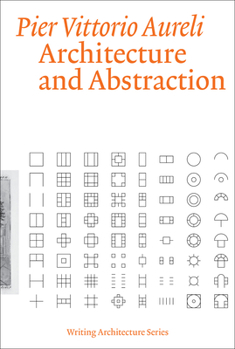Architecture and Abstraction
A landmark study of abstraction in architectural history, theory, and practice that challenges our assumptions about the meaning of abstract forms. In this theoretical study of abstraction in architecture--the first of its kind--Pier Vittorio Aureli argues for a reconsideration of abstraction, its meanings, and its sources. Although architects have typically interpreted abstraction in formal terms--the purposeful reduction of the complexities of design to its essentials--Aureli shows that abstraction instead arises from the material conditions of building production. In a lively study informed by Walter Benjamin, Karl Marx, Alfred Sohn-Rethel, and other social theorists, this book presents abstraction in architecture not as an aesthetic tendency but as a movement that arises from modern divisions of labor and consequent social asymmetries. These divisions were anticipated by the architecture of antiquity, which established a distinction between manual and intellectual labor, and placed the former in service to the latter. Further abstractions arose as geometry, used for measuring territories, became the intermediary between land and money and eventually produced the logic of the grid. In our own time, architectural abstraction serves the logic of capitalism and embraces the premise that all things can be exchanged--even experience itself is a commodity. To resist this turn, Aureli seeks a critique of architecture that begins not by scaling philosophical heights, but by standing at the ground level of material practice.
Format:Paperback
Language:English
ISBN:0262545233
ISBN13:9780262545235
Release Date:November 2023
Publisher:MIT Press
Length:314 Pages
Weight:1.10 lbs.
Dimensions:1.0" x 5.3" x 7.9"
Related Subjects
ArchitectureCustomer Reviews
0 rating





